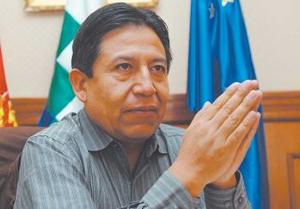by EMILY ACHTENBERG
 Bolivia’s Foreign Minister David Choquehuanca. CREDIT/La Razón
Bolivia’s Foreign Minister David Choquehuanca. CREDIT/La Razón
On November 7, Bolivia and the United States signed a “framework agreement” (acuerdo marco) to restore diplomatic ties, after three years of frayed relations. While the details are yet to be determined, the agreement appears to represent a significant political victory for Bolivia, laying out a new collaborative direction for a relationship long characterized by U.S. dominance and interventionism. Internally, it may also have a positive impact on Bolivia’s “process of change.”
The pact establishes a new framework for bilateral relations, based on “shared responsibility and mutual respect” for each nation’s sovereignty and integrity, and provides joint mechanisms for conflict resolution. It calls for close cooperation especially in the areas of counter-narcotics, development assistance, and trade, and anticipates the mutual return of ambassadors as soon as possible.
“For the first time since the foundation of Bolivia,” says President Evo Morales, “the U.S. will respect Bolivian laws and its Constitution.” According to Vice President Alvaro Garcia Linera, the agreement’s collaborative model is unique in Latin America.
In September 2008, Morales expelled U.S. Ambassador Philip Goldberg, followed by the Drug Enforcement Agency (DEA), for allegedly assisting efforts to destabilize his government. The United States retaliated by ousting the Bolivian ambassador and decertifying Bolivia from continued participation in the Andean Trade Promotion and Drug Eradication Act (ATPDEA), which, since 1991, had allowed Bolivia to export textiles and other products duty-free to U.S. markets.
Since then, Bolivia has frequently accused the United States of political interference, most recently in connection with the TIPNIS conflict. The United States has continued to criticize Bolivia for its allegedly lax counter-narcotics efforts—even though the UN found that illegal coca cultivation grew by only 3% last year.
